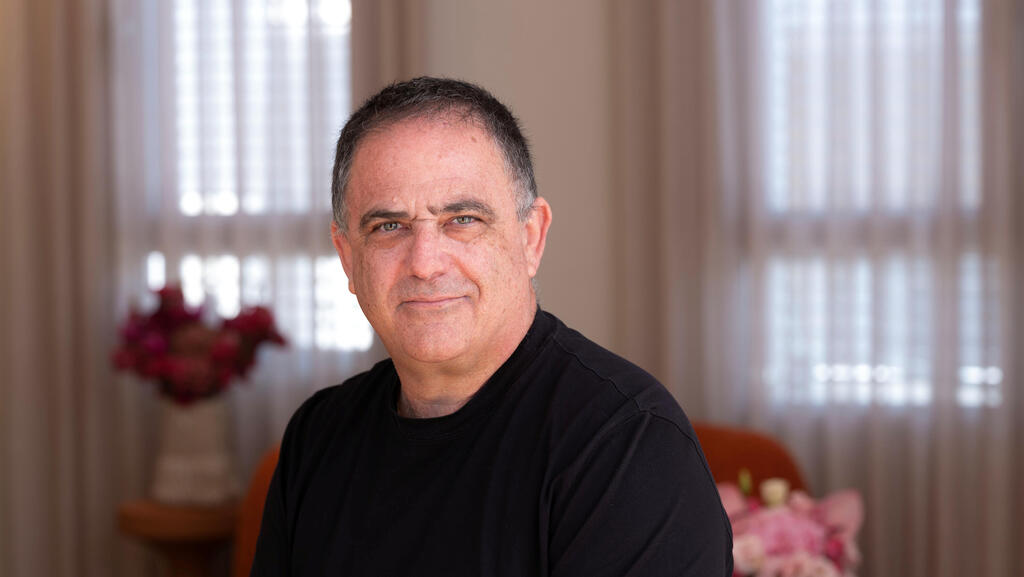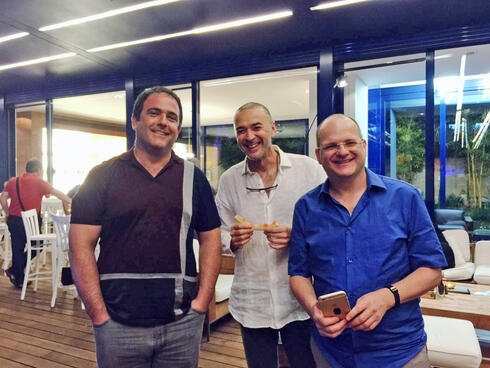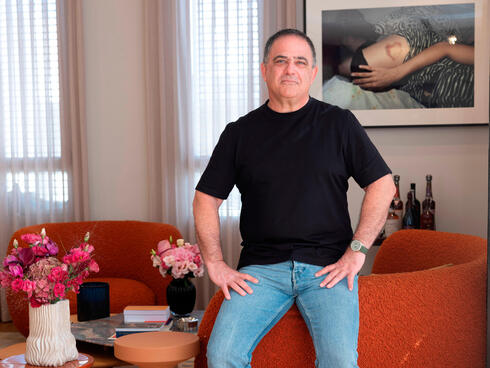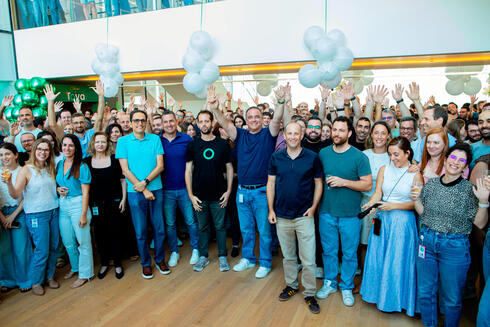
Shlomo Kramer: “AI is going to destroy humanity as a liberal society”
In a candid conversation, the Check Point co-founder and Cato Networks CEO reflects on building the Internet, the unintended consequences of technology, the resilience of Israeli high-tech during war, the risks to democracy, and his fears that artificial intelligence will erode liberal society.
"When Gil and I founded Check Point, we ideologically believed in the Internet as something that would unite the human race on a supranational basis, something that opened up the possibility for everyone to be heard. The ultimate expression of freedom of speech, liberty, and democracy. Today I understand that while we knew computers very well, in truth we understood nothing about humans. It turns out that when you give humans a powerful tool, it can become the foundation of many of our troubles today.
"Check Point was an indispensable component in building the web and connecting people to the Internet. I see myself as part of those who built the web. But we did not understand that people would use the Internet and the social networks that arose from it as a weapon, as a tool for accumulating power, for violence, for war. That is simply the nature of Homo sapiens. It is no coincidence that this is the species that became dominant on Earth, even though it has no special physical characteristics. It is not as big as an elephant or as strong as a lion, but it is very aggressive and, at the same time, intelligent, and therefore knows how to use tools with extraordinary aggression. Over the years, I have come to regret that the enterprise of our lives, Gil’s, mine, and that of many others, has become the destruction of everything we once believed in: democracy and liberalism."
This powerful and surprising confession belongs to Shlomo Kramer. Gil is Gil Shwed, his partner in founding Check Point a little over 30 years ago with Marius Nacht. Since the founding of Check Point, which could be said to have invented the field of cyber when it explained to banks and insurance companies that if they wanted to connect employees and customers to the Internet, they needed to do so securely, with the help of a “firewall” to protect them from intruders, countless brilliant ideas have flowed into Israeli and global high-tech, along with countless billions of dollars.
Kramer himself has not been at Check Point for 20 years. Since then, he has founded, taken public, and sold Imperva, and in 2015 he founded his current company, Cato Networks, which was valued at nearly $5 billion in its most recent funding round in the summer of 2025. Although Cato has not yet fulfilled Kramer's dream of an IPO, which may still come true next year, as he approaches his 60th birthday he seems increasingly devoted to philosophical thinking not only about the future of high-tech or Israel, but about humanity as a whole. Of course, he still runs Cato with a firm hand over its 1,500 employees. The company recently completed its first and most publicized acquisition: Israeli AI startup Aim Security, just two years old with 52 employees, bought for an estimated $350 million.
At the same time, Kramer devotes much of his free time to analyzing reality, which makes it difficult for him to maintain the optimism expected of entrepreneurs, who must push forward against every obstacle. But he is used to this. After all, Kramer has been racing for 45 years, since he began working on his first computer in the small room of a childhood friend in Ramat Gan, where he grew up. And yet, something lately has been causing him new fears about the future. This, of course, is tied to October 7 and the situation in Israel, but perhaps also to his personal life, following reports of his divorce from Dorit Hakim Kramer, his wife of nearly 30 years, whose book published last year described with plenty of detail. But what frightens Kramer most is something unexpected: artificial intelligence. Not in the realm of cyberattacks, but on a much deeper level.
“Because of AI, we are on the brink of a huge disaster”
In a special interview with Calcalist, Kramer does not hesitate to sound paranoid with deep technological anxiety. “The biggest problem facing humanity today is artificial intelligence. We are on the brink of a huge human disaster,” he says. “All the talk about gaps in high-tech and the problems created by technology doesn’t even come close to the real problem humanity now faces, which is created by technology itself.”
What worries him has nothing to do with cyberspace or with robots taking over our lives. Kramer's great fear is about flesh-and-blood humans, combined with the powerful tool he once helped place in their handsת the Internet.
“AI is going to destroy humanity as a liberal society,” Kramer warns, outlining in detail the horror scenario he envisions: “Humans have a deep need for consistency, to be able to convince themselves about what will happen next. People don’t necessarily need to know what is true or false, only that something is consistent. In the past, this consistency came through faith, through the church, which provided a system of beliefs. But that era was filled with wars, because when two churches met, the relationship between them was rigid. After the scientific revolution, things changed. Lies could be refuted through experiment or democratic dialogue, leading to something closer to the truth. That worked wonderfully and drove the industrial revolution, the media revolution, and later the social revolution, until we reached AI. And with that, we went backwards. Social media, together with AI, have made it impossible to know what is true, what is false, or what comes next. With AI, you can fabricate anything. Something like Bibi’s ‘poison machine,’ only much more powerful, and that’s still in the primitive stage of social media, before the full creation of rich, AI-generated content.”
What troubles Kramer most is that liberal democracies are the ones likely to be harmed or even eliminated in their current form by AI, while totalitarian states like China or Russia may thrive. “Democratic countries will either collapse from within or become authoritarian,” he warns. “We are already witnessing the disintegration of countries that still try to preserve freedom of expression, with the United States at the forefront. Nations that enforce a single narrative have an enormous asymmetric advantage, and therefore they will prevail. The process is already under way, but the collapse will come once AI pours fuel on the fire of social media. Companies are acting with complete irresponsibility, from Meta and X to AI firms that glorify profits while failing to understand that what they’ve built will have a devastating impact.”
But this is humanity's problem, not something that high-tech can solve. We have never seen a technology company limit its own development, nor a human society voluntarily limit progress.
"It's true, this is a threat to the world order and it needs to be discussed from every stage today. The countries are the ones who must stop this. Democratic countries will have to limit freedom of expression precisely in order to save it. We must introduce regulation into social platforms, introduce a requirement that every post on social networks indicate the source behind it. Anyone identified as a bot will have to be removed, anyone identified as part of a campaign will be removed, and anyone caught lying several times will be removed."
After making the suggestion, he nevertheless adds a caveat, because at this stage he was thinking mainly about identifying the problem and not about providing a solution. "I don't know exactly how to do it. There should probably be a committee to deal with it. But what I see from where I sit is that we are like that bird in the cartoons that keeps running without realizing it has long been over the abyss," he says.
If you were older in the early 1990s, would you have recognized the seeds of disaster that you now see in AI?
"The problem is not the Internet or AI, but human nature. The technologies need to be developed, and no one has the ability or reason to stop their development, but they need to be fenced off. Technology is advancing too quickly compared to the legal and regulatory system. If you look back at history, consider the invention of the railway, for example. It was a great thing, but it also caused World War I because it became possible to easily transport hundreds of thousands of soldiers. Or fertilizers, which were developed to increase agricultural production and reduce hunger in the world, but were also used to create chemical weapons," Kramer says, providing a disturbing comparison to illustrate the depth of the disaster that irresponsible use of artificial intelligence could cause.
And what about in Israel?
"Israel is an example of tremendous division, and that's without Russia or China working on it, as they do in the United States. Here we have someone from within the country who operates the system from the inside."
The fear: We are on the path to the abyss
Criticism of Israel from Kramer is no longer surprising. Just as Kramer can be defined as one of the founding fathers of Israeli high-tech in general and cyber in particular, he was also the one who actually started the high-tech protest. As soon as the results of the November 2022 elections were announced, even before Justice Minister Yariv Levin presented his plan for a judicial coup, Kramer warned of the consequences. After many years in which he confined himself to talking only about technology and cyber, he suddenly emerged from the comfortable shell of high-tech and became a vocal spokesman for the protest.
A month ago, Kramer called me, his voice filled with urgency. The issue was the publication of a column in Calcalist. An column written from his heart, containing 2,000 words that ranged from deep personal exposure to fear. This time, not fear of AI, but something more local and no less disturbing: Israel's final plunge into messianism.
This was the opening of the column: "The clock of the existence of the State of Israel is in the final minutes of a historic hour. Our state stands at an existential crossroads from which two paths emerge: one leads to the abyss, the other to the continued prosperity of the Zionist enterprise. I write this column as an Israeli citizen, as a descendant of Diaspora Jewry, and as a longtime member of the Israeli high-tech community. If, as a nation, we do not choose our path correctly and quickly, at best we will find ourselves living as Jews in an Arab country or in the diaspora, and at worst we will find ourselves dying in great bloodshed. On the way to this abyss we will experience autocracy, oppression, moral bankruptcy, and a global boycott, until we collapse into a hated Middle Eastern state that is indefensible and doomed. The second path leads to a liberal, democratic society prepared to fight. High-tech has a decisive role, not only in exerting its weight in choosing the path but also, by virtue of its cultural essence, in charting it."
In the scathing column, Kramer also surprised his readers by describing how he cheered for Menachem Begin when he was elected prime minister in the 1977 elections, shattering the stereotype of the elite Unit 8200, Ashkenazi, privileged, leftist high-tech entrepreneur.
What made you expose yourself like this?
"I've always been like this, but no one ever asked me," Kramer says, almost offended. "If they had asked, I would have answered willingly.
"We, the computer kids of the 1980s, saw ourselves as a reactionary fringe movement, drawing energy from the spirit of youth and curiosity. We founded Israeli high-tech out of a desire for something optimistic, normal, and interesting, not just a society constantly at war. But today I realize that we stayed in our closed rooms for too long and let other forces in the country grow stronger. When I finally stepped outside, my eyes darkened. The breaking point came with the judicial overhaul and later on October 7, when high-tech awoke from its hibernation of disengagement from Israeli public life," Kramer says, describing the transformation the industry has undergone since early 2023.
Indeed, high-tech left the luxury towers of Sarona and found itself in Kaplan, vilified by the government at every opportunity, with Prime Minister Benjamin Netanyahu at its head. From sought-after high-tech workers, they became "Kaplanists".
Related articles:
"The things I said about the future of Israel burn inside me, but I am not a philosopher or a politician. I just tried to modestly suggest how it might be possible to reconnect the original Zionism, not the messianic mutation that has developed here in the last 50 years, with high-tech and the rest of civil society. I think today there is no longer left and right. My proposal is to build a society that carries the burden of fighting, what Moshe Dayan called 'carrying the gates of Gaza on its shoulders', but also builds something from the brotherhood of fighters, because if we fight together, it cancels out all differences. We see each other as equals in the face of danger. The alternative is the absurdity of messianism, which has effectively been in power for the past decade, even if formally through Netanyahu."
And it turns out that Kramer was never asked about anything else, which is a shame, because in recent years he has also been writing poetry, which he has begun to share publicly. "I recently published a book of poetry on Instagram. It's been a hobby of mine for many years, something I’ve done in parallel with my work in high-tech," he says. "I’ve written on and off over the years. It never seemed good enough to me, but Instagram tolerates everything. It tolerated the photographs I posted there for 13 years, so it will tolerate the poems as well. I wrote both when I was 16 and working on my first computer, and when I was 30 and doing an IPO on Wall Street."
Have you received any inquiries from book publishers?
"No publisher has offered me anything, but people are responding. I’ve received good feedback. It's limited to a small group of people who know me, and everyone connects to a different poem."
Are you actually an artistic soul trapped in the body of a high-tech person?
"I'm amazed at you. High-tech is art. Right now, as part of a growth spurt at Cato, which has already reached an annual revenue run rate of $300 million and is set to hit $1 billion at the next milestone, with 1,500 employees, most of them outside Israel, I'm trying to develop quantitative indicators (KPIs) with my engineering department. The managers are terrified of my idea: 'How do we measure the work? How do we quantify quality?' they ask me. What is this if not an artist's approach? Every good software engineer sees himself as an artist, at least to some extent."
If we touched on Cato and cyber and connected them to October 7, let's talk about the current situation. If someone had told me, and I'm sure you too, that precisely during these two years of a difficult war and the deep damage to Israel's image, bordering on boycott, high-tech would flourish, you wouldn't have believed it. Specifically in cyber, you at Cato raised $450 million at a valuation of $5 billion, and the industry also set historic global records with the sale of Wiz to Google for $32 billion and the sale of CyberArk to Palo Alto for $26 billion. How do you explain that?
"A lot of hard work by a lot of people. A lot of resilience and strength. When I look at Cato's employees who continue to work, close a funding round, release new products, and support salespeople all over the world, all while missiles are falling near the offices, I understand how everything happens. And this is after two years of war, after a financial crisis, after COVID.
"It just shows how resilient and committed Israeli high-tech is, which is why I love it. But it's not perfect. This is not the picture of high-tech that people like to paint abroad, of white men making a lot of money and basking in their privilege. This is not what I've seen in the last five and a half years of building Cato through COVID, the judicial coup, and a two-year war on five fronts."
The employees' side, who want to preserve normality as much as possible, can be understood. But how do you explain the investors' side, who don’t run away?
"This can’t continue forever. If we continue like this, it will damage the brand called Israel and Startup Nation. I've been worried about this since the election of the current government."
But seemingly all the risks have already materialized. What else could happen that would scare investors more?
"You're optimistic. You know the song by Uri Zohar, 'It's nothing, Mom, there's a bigger fish, the one that ate Dad?'" Kramer laughs bitterly. "What we saw is still nothing compared to what could be."
Give me your worst-case scenario.
"I don't want to give it away, but there could be a decline in Israel's democracy index. We've been on the decline for four years, but we could go down even further if, God forbid, this government is elected again."
Nir Zuk, who was with you in 8200 and one of the first employees of Check Point, which later founded Palo Alto and in which you also invested, recently said that positions and statements like yours, and the very fact that high-tech joined the protest, were a shot in the foot, a kind of self-fulfilling prophecy that revealed to foreign investors that we have a problem here in Israel.
"Nir Zuk has said a lot of things in the 40 years I've known him, and not all of them were smart or right. This is one of them. But I really like him, and he also said and did a lot of right things. Here I really disagree with him. High-tech is a very significant group in Israeli society that has the right to express its opinion. When I speak, I speak both as a high-tech professional and as a citizen. I do think that as a high-tech professional there is a certain point of view that allows me to see things, I don't have to hide it."
But how do we continue to innovate, recruit employees here, and think about the Cato IPO if the conversation with you gives the feeling that everything is closing in on us, from internal problems to the big cloud of AI that hovers over democratic society? Where do you get the optimism to push 1,500 employees forward?
"You can't be an entrepreneur without being very optimistic. I believe that solutions can be found for all these problems. That's why it's also important for me to present them, to call on everyone to work together on the solution. In the meantime, we'll take care of the impact of AI on network security within the framework of Cato. This is my little corner of daily life. We will be a leader in the field of AI security, which is why we made the acquisition of Aim."
With all the thought you devote to issues not necessarily related to technology, and with the passion for fixing that burns in you, aren't you asked to go into politics?
"As long as Cato wants me, I'll stay there. You must have noticed from my statements that I'm very incompetent in politics."
Ultimately, talented people from high-tech are reluctant to enter politics, and this is what leaves us with a very specific profile of figures who do. Why?
"Because Israeli politics has a clear management strategy of putting people around you who are incapable, so that you can continue to manage everything."
From 1 to 10, how worried are you about the state of Israeli high-tech, and how worried are you about the state of the State of Israel?
"The state of the State of Israel - 8. The state of high-tech itself, I'm not worried about. But since it is in Israel, and its state is derived from the state of the country, then 4."


